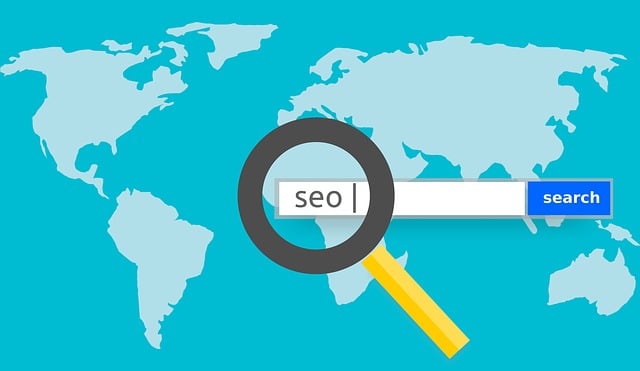Local SEO is a critical strategy for small businesses to thrive in today's digital landscape. By focusing on Google Business Profile optimization, consistent NAP citations, and location-specific keyword integration, businesses can enhance their online visibility and attract local customers. Key components include claiming GBP, earning reviews, using local keywords, building backlinks, leveraging social media, and researching relevant keywords. Measuring performance with tools like Google Analytics and Search Console is essential for continuous improvement. Proactive management ensures small businesses stay competitive in a dynamic digital environment.
In today’s digital landscape, local SEO is a game-changer for small businesses aiming to thrive. This comprehensive guide will equip owners with essential strategies to boost online visibility and attract targeted customers. From understanding the power of local search to implementing effective business listings and leveraging social media, each section unveils vital steps for success in the competitive market. Master these techniques, and watch your small business dance at the top of local search results.
Understanding Local SEO: Why It Matters for Small Businesses

For small business owners, understanding and leveraging Local SEO is crucial for attracting customers within their immediate geographic reach. In today’s digital era, potential clients often turn to search engines like Google when looking for local services or products. Optimizing your online presence for local searches can significantly increase visibility and drive targeted traffic to your business. By claiming and optimizing your Google Business Profile (GBP), ensuring accurate NAP (Name, Address, Phone number) consistency across directories, and incorporating location-specific keywords into your content strategy, you enhance your chances of appearing in local search results.
Local SEO matters because it helps build a strong connection with the community. It enables business owners to compete with larger corporations by showcasing their unique value propositions and fostering trust among local customers. Moreover, it allows businesses to engage directly with their target audience through online reviews, encouraging feedback and building a positive reputation. This strategy is especially vital for small businesses as it can level the playing field in a competitive market, ensuring they remain relevant and desirable choices for locals seeking their specific offerings.
Key Components of a Successful Local SEO Strategy

A successful local SEO strategy for small businesses involves several key components. Firstly, claiming and optimizing your Google Business Profile (GBP) is essential. This profile acts as a cornerstone for all local search efforts, providing vital information about your business to both search engines and potential customers. Update it regularly with accurate details, including categories, working hours, and high-quality images to boost visibility in local pack results.
Additionally, earning consistent online reviews from satisfied customers is crucial. Positive reviews not only enhance your credibility but also improve your ranking in local search results. Encourage happy clients to leave feedback on relevant platforms, ensuring a balanced mix of reviews. Local keywords strategically integrated into your website content and blog posts can further strengthen your local SEO efforts. By focusing on these components, small businesses can significantly increase their online presence and attract more targeted traffic from potential customers within their geographic reach.
Optimizing Your Business Listing for Search Engines

Optimizing your business listing is a key component of local SEO for small businesses, ensuring that your company appears in relevant searches on Google Maps and other location-based platforms. Start by claiming and verifying your Google My Business profile, which serves as your business’s front door to local searchers. Fill out all the necessary details, including your address, operating hours, contact information, and services offered. High-quality, accurate images and videos can also enhance user experience and encourage more interactions.
Regularly updating your listing with fresh content is crucial. Posting about promotions, events, or new offerings not only keeps your business relevant but also increases the likelihood of appearing in local search results. Additionally, encouraging satisfied customers to leave reviews can significantly boost your online reputation and visibility. Positive reviews not only attract new prospects but also reinforce your business’s trustworthiness and local relevance in the eyes of potential clients.
Leveraging Google My Business for Maximum Impact

Google My Business (GMB) is a powerful tool for small business owners looking to boost their Local SEO efforts. By claiming and optimizing your GMB listing, you can ensure your business appears prominently in local search results, map listings, and Google’s algorithm prioritizes it based on relevance and user engagement. This means that potential customers searching for services or products near them are more likely to find and choose your business.
Regularly updating your GMB profile with accurate information, high-quality photos, and engaging posts can significantly enhance its impact. Responding to customer reviews—both positive and negative—shows that you value feedback and actively engage with your community. This not only improves your listing’s visibility but also fosters trust and encourages more interactions, ultimately driving local foot traffic and increasing conversions for your small business.
Building High-Quality Backlinks for Local Visibility

Building high-quality backlinks is a crucial strategy for small business owners aiming to enhance their local SEO. These links act as digital recommendations, signaling to search engines that your business is reputable and worth featuring prominently in local search results. Focus on acquiring backlinks from authoritative, relevant local websites—such as community blogs, industry associations, or city-specific directories. Guest blogging on these platforms not only provides valuable exposure but also ensures your website is associated with trusted sources in your area.
Additionally, encourage satisfied customers to leave positive reviews on reputable review sites and social media platforms. These user-generated backlinks carry significant weight in local SEO because they demonstrate the quality of your services or products through authentic testimonials. Regularly monitoring and managing these online reviews can significantly impact your local search visibility, driving more targeted traffic to your small business website.
Utilizing Social Media to Boost Online Presence

For small business owners, leveraging social media is a powerful way to enhance their online presence and reach potential customers in their local area through Local SEO for Small Businesses. Platforms like Facebook, Instagram, and Twitter offer direct engagement with audiences who are actively searching for businesses like theirs. By creating compelling content that includes location-specific hashtags and regularly interacting with followers, businesses can increase their visibility and establish a strong local online identity.
Additionally, these platforms allow for targeted advertising, enabling business owners to reach specific demographics based on location, interests, and behaviors. This strategic approach ensures that marketing efforts are focused on the right audience, maximizing the impact of social media in driving local customers to the physical store or website.
Local Keyword Research: Unlocking Targeted Traffic

Local keyword research is a powerful tool for small business owners looking to boost their online visibility and attract targeted customers within their geographical reach. By focusing on local SEO for small businesses, entrepreneurs can unlock a wealth of potential clients who are actively searching for products or services nearby. This involves understanding what terms people use when seeking local businesses like yours; it’s not just about “plumbing services” but also includes location-specific queries like “plumbers in Toronto” or “affordable plumbing near me.”
Local SEO strategies should incorporate these keywords naturally into website content, meta descriptions, and even social media posts to ensure your business appears in local search results. Tools like Google Keyword Planner or specialized local SEO software can assist in identifying relevant keywords with high search volumes and low competition, making it easier for small businesses to rank higher on local search pages and ultimately drive more foot traffic through effective keyword research.
Measuring and Analyzing Local SEO Performance

Measuring and analyzing local SEO performance is a crucial step for small business owners to understand their online visibility within their immediate geographic area. Tools like Google Analytics and Search Console can provide valuable insights into how customers are finding your business locally. By tracking keyword rankings, click-through rates (CTRs), and conversion rates specific to local search queries, you gain actionable data to optimize your website and online listings.
Local SEO for small businesses involves ensuring consistent and accurate NAP (Name, Address, Phone number) citations across various directories and platforms. Regularly monitoring and updating these citations help maintain the integrity of your business information, which is vital for local search algorithms. Additionally, engaging with online reviews left by customers can significantly impact your local SEO performance, fostering trust and encouraging more potential patrons to choose your business over competitors.
Staying Ahead of Algorithm Updates for Continuous Growth

In the dynamic landscape of online visibility, small business owners must constantly adapt to stay relevant in search engine results. A key aspect of this strategy involves staying ahead of algorithm updates, particularly those from Google, which significantly impact Local SEO for Small Businesses. These updates are designed to enhance user experience by promoting the most valuable and relevant content, meaning businesses that don’t keep pace risk losing their digital footprint.
Regularly reviewing and optimizing your online presence is crucial. This includes updating content to reflect current trends, ensuring mobile optimization, and leveraging local keywords effectively in both content and metadata. By embracing a proactive approach to Local SEO strategies, small business owners can continue to attract targeted traffic, drive conversions, and sustain continuous growth even amidst algorithm shifts.
